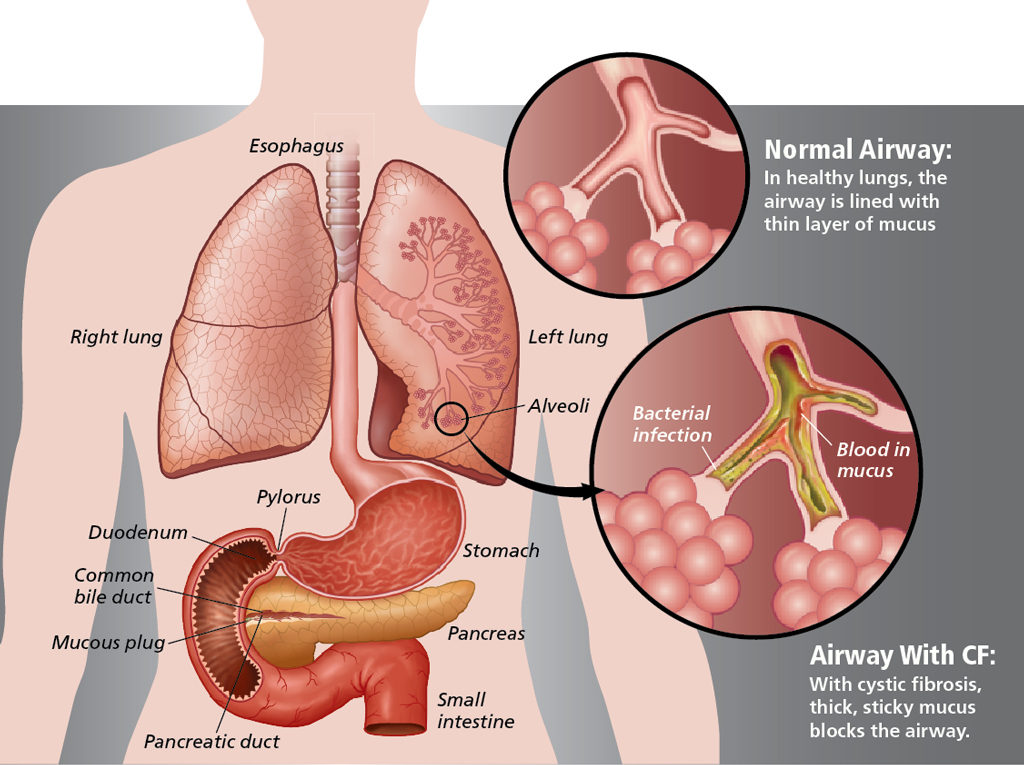Cystic fibrosis is a progressive, genetic disease that causes persistent lung infections and limits the ability to breathe over time. Today, the average life span for people with CF who live to adulthood is about 47 years.
In people with CF, a defective gene causes a thick, sticky buildup of mucus in the lungs, pancreas, and other organs. In the lungs, the mucus clogs the airways and traps bacteria leading to infections, extensive lung damage, and eventually, respiratory failure. In the pancreas, the mucus prevents the release of digestive enzymes that allow the body to break down food and absorb vital nutrients.
 According to the Cystic Fibrosis Foundation Patient Registry, in the United States:
According to the Cystic Fibrosis Foundation Patient Registry, in the United States:
-
More than 30,000 people are living with cystic fibrosis (more than 70,000 worldwide).
-
Approximately 1,000 new cases of CF are diagnosed each year.
-
More than 75 percent of people with CF are diagnosed by age 2.
-
More than half of the CF population is age 18 or older..
The Cystic Fibrosis Foundation supports a wide range of research that focuses on not only improving the quality of life for people with cystic fibrosis today, but also on pushing the frontiers of science in the search for a cure.
To learn more about CF please vist: CFF.org
 According to the Cystic Fibrosis Foundation Patient Registry, in the United States:
According to the Cystic Fibrosis Foundation Patient Registry, in the United States: